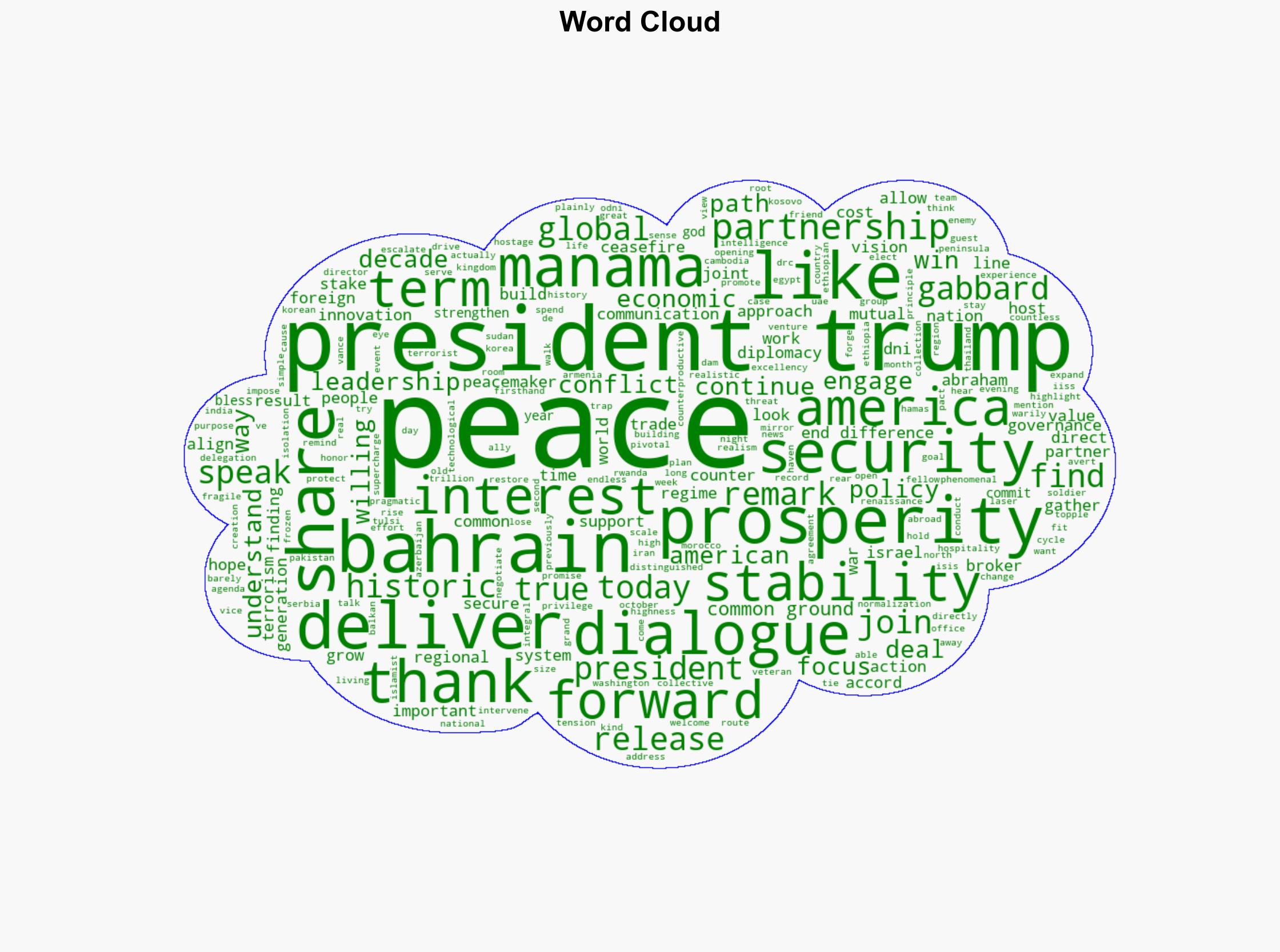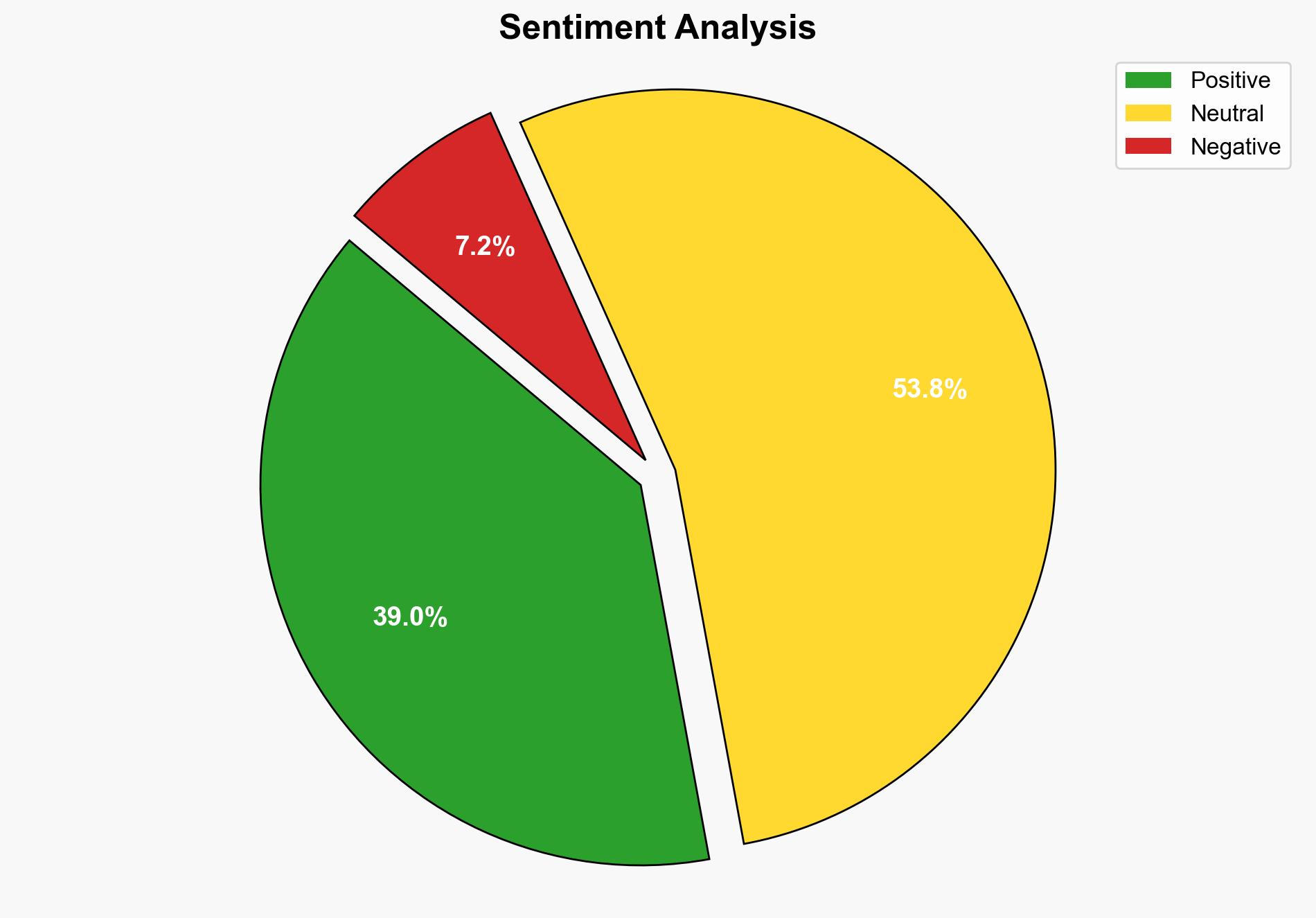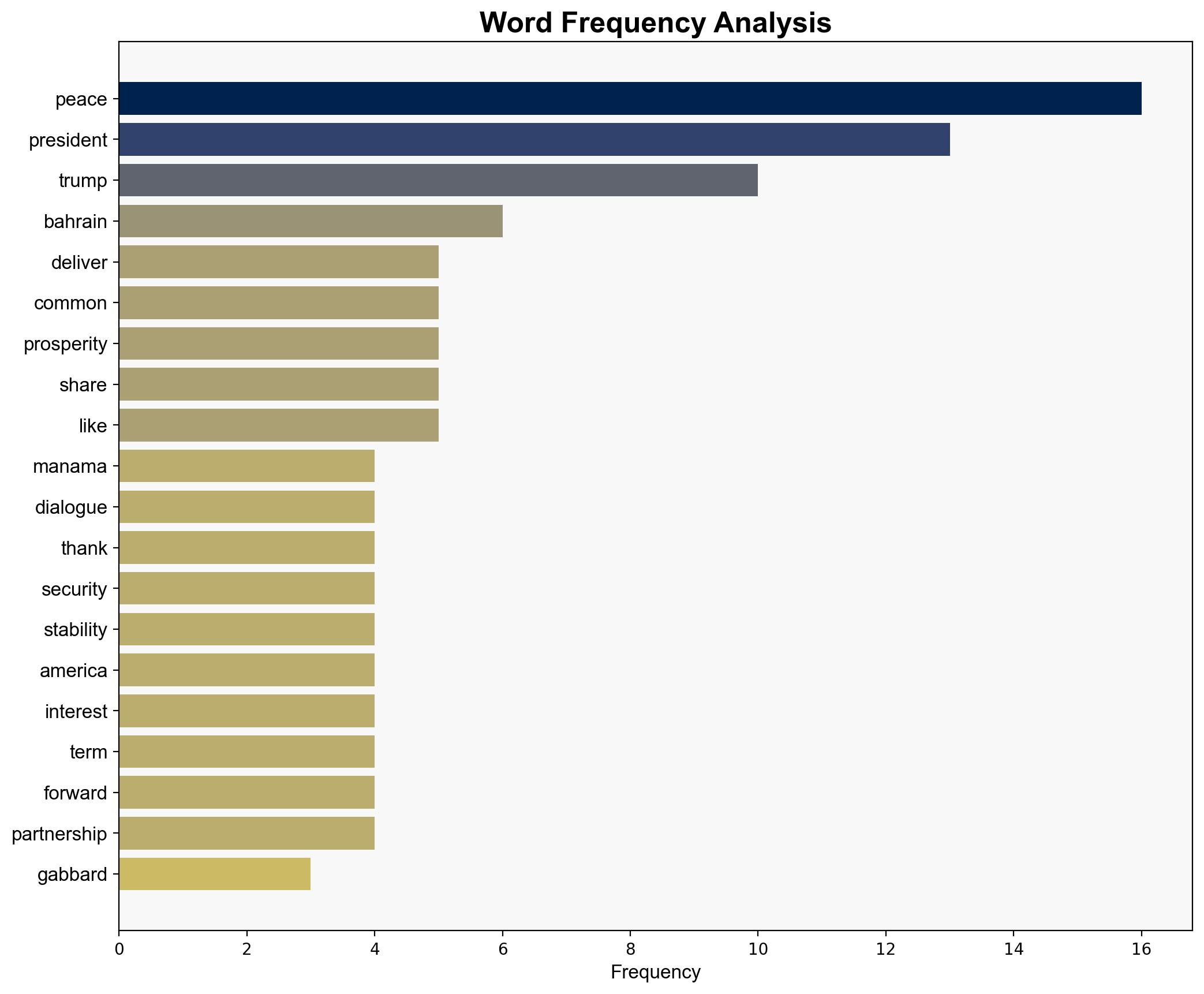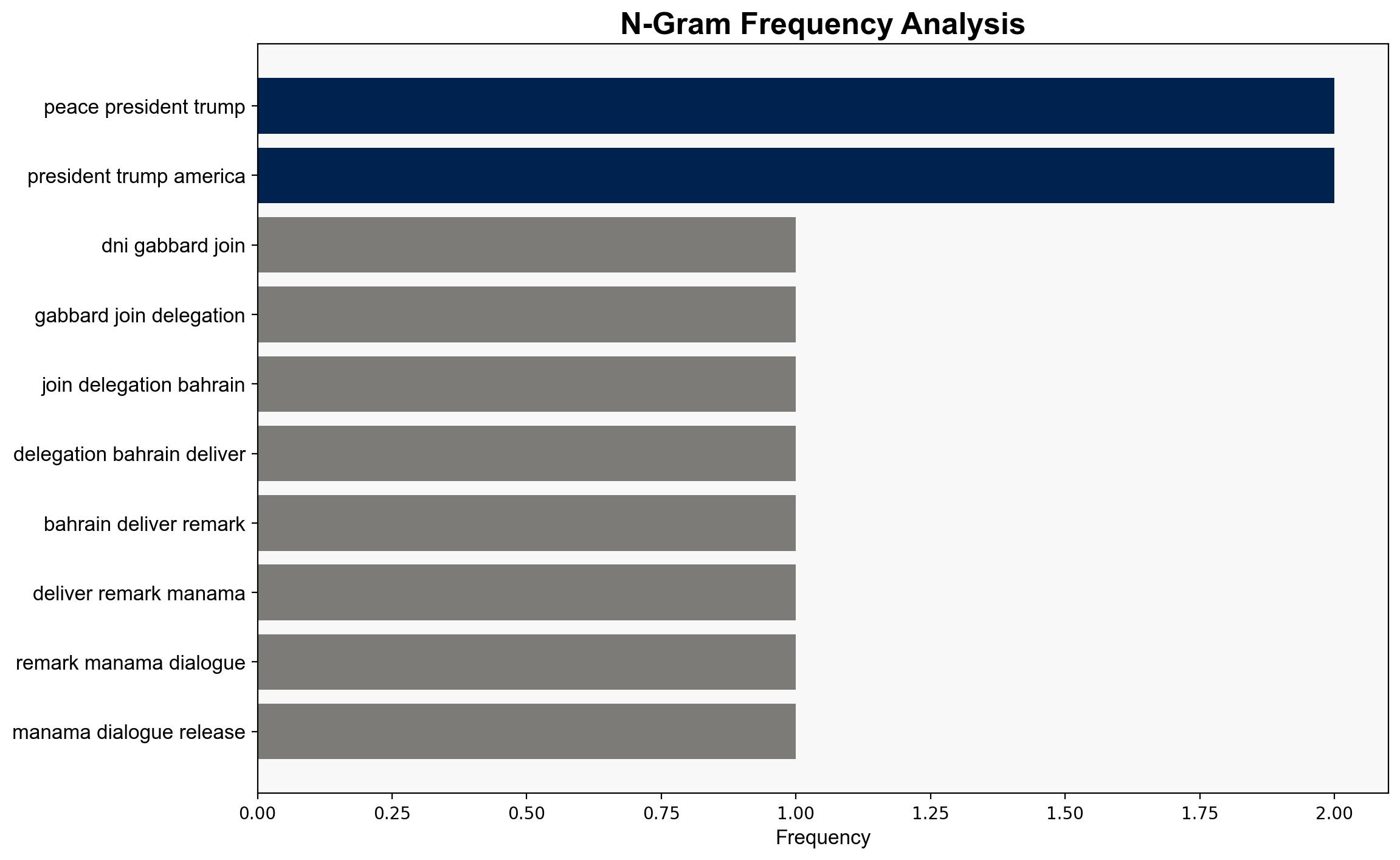DNI Gabbard Joins US Delegation in Bahrain Delivers Remarks at Manama Dialogue – Globalsecurity.org
Published on: 2025-11-01
Intelligence Report: DNI Gabbard Joins US Delegation in Bahrain Delivers Remarks at Manama Dialogue – Globalsecurity.org
1. BLUF (Bottom Line Up Front)
The strategic judgment is that the remarks by Tulsi Gabbard at the Manama Dialogue emphasize a shift towards a pragmatic, peace-driven foreign policy under the Trump administration. The most supported hypothesis is that this approach aims to solidify US influence in the Middle East through economic and diplomatic engagement. Confidence level: Moderate. Recommended action: Monitor the implementation of the Abraham Accords and related diplomatic efforts for further indicators of regional stability or instability.
2. Competing Hypotheses
1. **Hypothesis A**: The speech signifies a genuine shift in US foreign policy towards pragmatic diplomacy and economic partnerships, aiming to reduce military interventions and promote regional stability through the Abraham Accords.
2. **Hypothesis B**: The speech is primarily rhetorical, designed to project an image of diplomatic success and peace-building, while actual policy remains largely unchanged, focusing on traditional power dynamics and military presence.
Using ACH 2.0, Hypothesis A is better supported due to the specific mention of the Abraham Accords and the emphasis on economic and diplomatic initiatives, which align with recent US actions in the region.
3. Key Assumptions and Red Flags
– **Assumptions**: Both hypotheses assume that the US has the capacity and willingness to sustain a long-term diplomatic and economic engagement in the Middle East.
– **Red Flags**: The absence of detailed implementation strategies for the peace initiatives mentioned raises questions about the feasibility of these plans.
– **Blind Spots**: Potential resistance from regional actors who may not align with US interests or the Abraham Accords is not addressed.
4. Implications and Strategic Risks
– **Economic Risks**: Failure to deliver on economic promises could undermine US credibility and influence in the region.
– **Geopolitical Risks**: The reliance on the Abraham Accords assumes continued cooperation from all signatories, which may be threatened by regional tensions or leadership changes.
– **Psychological Risks**: Over-promising peace and stability could lead to disillusionment among allies and partners if not achieved.
5. Recommendations and Outlook
- **Mitigate Risks**: Strengthen diplomatic channels and economic ties with key regional partners to ensure commitment to the Abraham Accords.
- **Exploit Opportunities**: Leverage the momentum of recent agreements to initiate new economic and security collaborations.
- **Scenario Projections**:
– **Best Case**: Successful expansion of the Abraham Accords leads to increased regional stability and economic growth.
– **Worst Case**: Breakdown of agreements results in heightened regional tensions and diminished US influence.
– **Most Likely**: Gradual progress with intermittent setbacks, requiring sustained diplomatic effort.
6. Key Individuals and Entities
– Tulsi Gabbard
– President Trump
– Vice President Vance
7. Thematic Tags
national security threats, cybersecurity, counter-terrorism, regional focus





